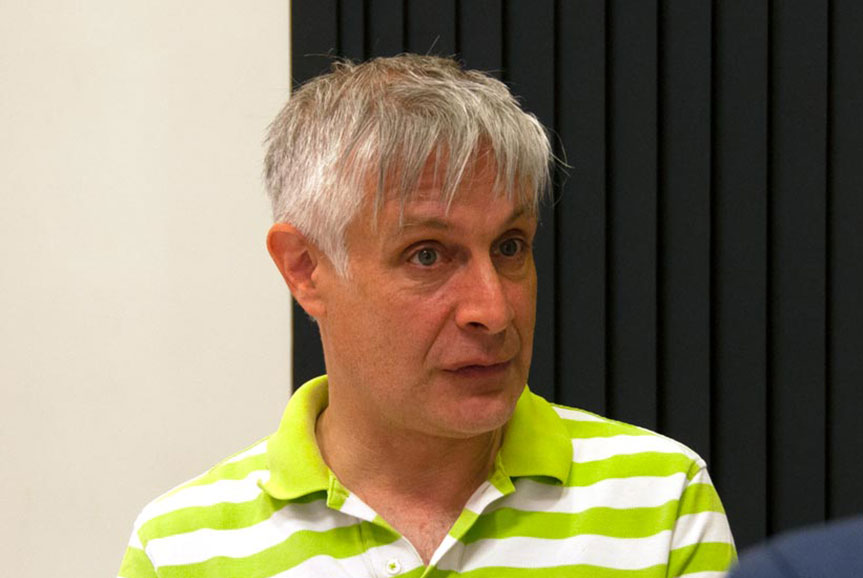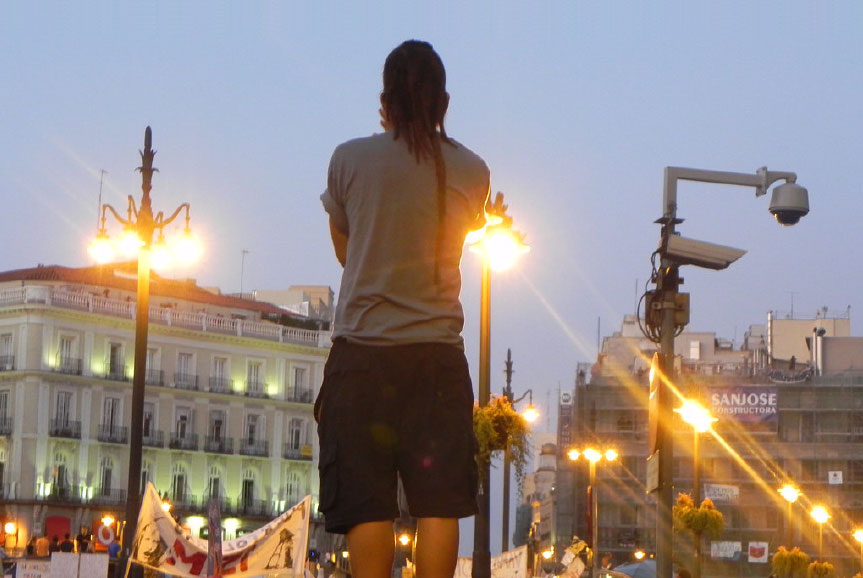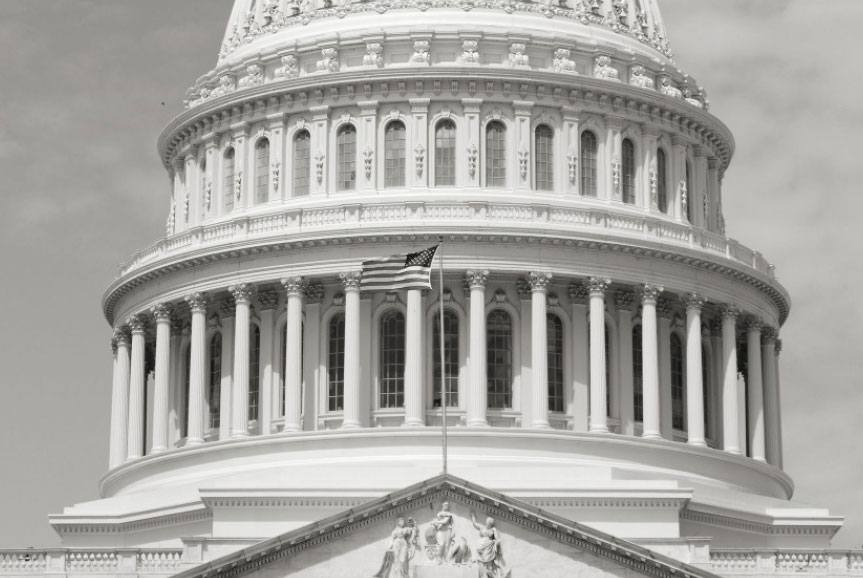@peterlevine
«I wouldn’t be surprised if Kamala Harris was the next Democratic nominee for 2020»
By José Luis Izaguirre @jl_izaguirre92
Peter Levine is one of the founders and main promoters of a new academic discipline called ‘civic studies’. Its objective is to analyze and promote that citizens deliberate in a shared manner and that they organize themselves for the achievement of specific ends that improve their specific social environment.
Peter Levine is the Associate Dean of Academic Affairs and Lincoln Filene Professor of Citizenship & Public Affairs in Tufts University’s Jonathan Tisch College of Civic Life. He has served on the boards or steering committees of AmericaSpeaks, Street Law Inc., the Newspaper Association of America Foundation, the Campaign for the Civic Mission of Schools, Discovering Justice, the Kettering Foundation, the American Bar Association Committee’s for Public Education, the Paul J. Aicher Foundation, and the Deliberative Democracy Consortium. He is author to many books and articles about sociology, politics and civic life.

You’re one of the main advocates for civic studies. Could you explain what civic studies means and how it affects societies and democracies?
We’re trying to develop a whole new academic discipline, so one could study civic studies as a degree like Political Science or Sociology. At the moment, only the Tufts University’s Jonathan Tisch College of Civic Life, where I teach, offers the possibility to do so. However, it is spreading and we have good friends in Spain like Universidad Camilo José Cela and in Mexico that are interested in this discipline.
Civic studies is more about learning what people can do and should do to change the world in groups. In Political Science, we learn about how the institutions work and in civic studies we learn about how citizens should organize themselves. The actual things we read might have been written by sociologists or political scientists, but it has a different flavor as it is a new discipline.
Why the need of developing this science? Would you say there is a civic life crisis in the US at the moment?
That is precisely part of the reason for it, a decline in civic life in the US. However, the situation is a bit more complicated because on the other hand there are in certain ways where it has gone better. For example, civic life is nowadays more inclusive than what it was in the past, less racially segregated. Nonetheless, we do have a problem with civic life at the moment.
This is also a global discipline, so as you look around the world you see civic needs, civic deficits.
Civic studies is about learning what people can do and should do to change the world in groups
In Spain, for example, we’ve recently had movements that originated from the civic life and that have won elections. However, we have also seen that after a few years of being in government, their internal structure imitates the traditional political parties’ structure. So, is it possible to be involved in civic movements that seek for a change without being part of the traditional power system?
That is exactly the kind of question we study in civic studies. I’m not an expert on Spain, but I slightly followed the ‘Indignados’ movement and how Podemos was created, also Ciudadanos, which claims citizenship. They haven’t remained as the big movement they were, especially in the case of Podemos, which came directly from civic movements. They are now more similar to conventional parties, so that’s a problem. There is a German sociologist from a hundred years ago, Robert Michels, that invented the phrase ‘the iron law of oligarchy’, which means that any democratic institution turns into an oligarchy because a small number of people always take it over.
I don’t believe it’s an iron law, I think we could solve that problem, but figuring out how to solve it is part of civic studies. To me, ‘los Indignados’ looks like a great civic flourishing and Podemos looks like a conventional political party, so how do you avoid that from happening?
It’s not the first time this happens, because if you think about the dissidents to the Soviet Union or the communism, they created a whole civic world and then they became political parties in countries like the Czech Republic or Poland, so this happens over and over in human history.
To me, ‘los Indignados’ looks like a great civic flourishing and Podemos looks like a conventional political party
One of the movements that have fought over the years and that are being more visible now is the feminist movement. We have seen it in the US with the #MeToo movement or in Spain with the demonstrations every 8th March for the past couple of years. How would you relate this specific movement to the democratic quality of a country?
Democracies need strong and healthy social movements, so it’s good that Spain has a strong women’s movement because it’s part of being a democracy is to have social movements, but I also think that feminist theory gives us a lot of resources for thinking about civic life and specifically new ideas about what civic life should be.

Going back to the comparison between the US and Spain, one of the issues we’ve seen in Spain flourish recently is the difference between the big cities and the rural areas, which is related to income, demography, education, etc. and the US has also the same problem. How can governments change this situation and can the university and the academics do something about it?
We certainly have huge disparities in wealth and poverty and we have the situation where big cities are doing better than the more rural areas. However, unlike Spain’s, the US population is growing. So, there are similarities and differences in both countries in this sense.
I’m not sure if I have a good solution, but I guess I would ask: ‘who is going to university?’ and ‘are all parts of the country represented in those qualified students?’. This would answer if the universities are dominated by urban youth, because universities have the right to admit students, so the decision-making in that matter is important. Universities are usually gatekeepers to the middle class and if people from the small towns aren’t going to university, that would be a problem that universities could try to solve.
Feminist theory gives us a lot of resources for thinking about civic life and specifically new ideas about what civic life should be
What do you think is the perception of the younger generations towards politics? What is the current sociological and electoral trend?
It has changed in the US, because the last few years have seen a tremendous growth in youth involvement. Actually, Donald Trump helps because young people really hate him and that’s very motivating. He has very limited support among young people and they are very angry. Another thing that is happening in the US is that the most prominent left since the 1960s is rising. In the congressional election last year more young people than ever voted and it will probably also be a record for the presidential election in 2020. Some of these young people will come out because of they dislike Trump but some will come out because they are quite far left so they will have to decide how to navigate in the political system there.
The last few years have seen a tremendous growth in youth involvement.
Would you say that the US society has changed during the Trump presidency?
It has definitely changed. For a lot of people is a very hard time. About 40% of the population actually like him, so they think the US is somehow getting better. The other 60% don’t like him, and for a lot of them it’s a fairly amazing set of developments that make us question our fundamental believes. A lot of us are struggling to understand the situation as we thought he had no chance of winning. One of the groups that were not too surprised are black Americans, because they thought white people are racist all along, so when a racist President gets elected, it does not surprise them. For a lot of black Americans, the day after the election was exactly like the day before. But for many white Americans that were more progressive, it was a shock.

It is quite a paradox, because on the one hand Trump got elected and on the other hand we see this new generation of public representatives from the Democratic Party like Alexandria Ocasio-Cortez that are changing the traditional way of doing politics, so do you think these are isolated cases or that they are a symbol of something that is changing?
I think it’s something that is changing. All countries are very complicated, so you can have two different things going on in the same country. In Spain, you have Vox and Podemos. But the most interesting thing is that our basic political line up is shifting. We had 30 years of small government Libertarian pop politics that was represented by the right American politicians and the more sociodemocratic left, but the right now is becoming nationalist. Donald Trump represents a very nationalist pro-government movement, so this changes the political system. The left is now being challenged by more radical ideas, so I think the situation is very fluid and it is hard to predict what will happen.
The right now is becoming nationalist
Let’s not forget that the US is also currently in the middle of the primary election for the Democratic nominee for the 2020 presidential election. What is your opinion on the candidates and do you have any predictions on who will become the nominee?
Whoever wins will have a decent chance against Trump but we won’t know who wins until the election. I think it will be fairly close so it won’t be easily won. This is partly because the economy is very strong at the moment. If the economy should go down in the next year, then probably Donald Trump won’t win, so one important thing is to see how the economy goes in the next months.
In terms of the candidates, one thing to note is that this is the best debate we’ve had in years because we have genuine ideological differences among the serious candidates, so it is not just who is better qualified for the job, but about those differences. Bernie Sanders and Elizabeth Warren represent two different lefts, so it is an interesting debate between them.
And they also represent a very different position from Joe Biden. We really haven’t had that before. This election will be very educational for the American people because this debate will be very interesting. I do not know who will win, but I if would have to mention someone that could be interesting for the Spanish people, it would be Kamala Harris, only because you may have not been reading about her so much but she is well positioned; she is a fairly new face, she is a person of color, she is a woman and she is quite moderate. I think that combination is a strong place to be so I would not be surprised to see her rising. And I wouldn’t be surprised if she won.
Leave a comment